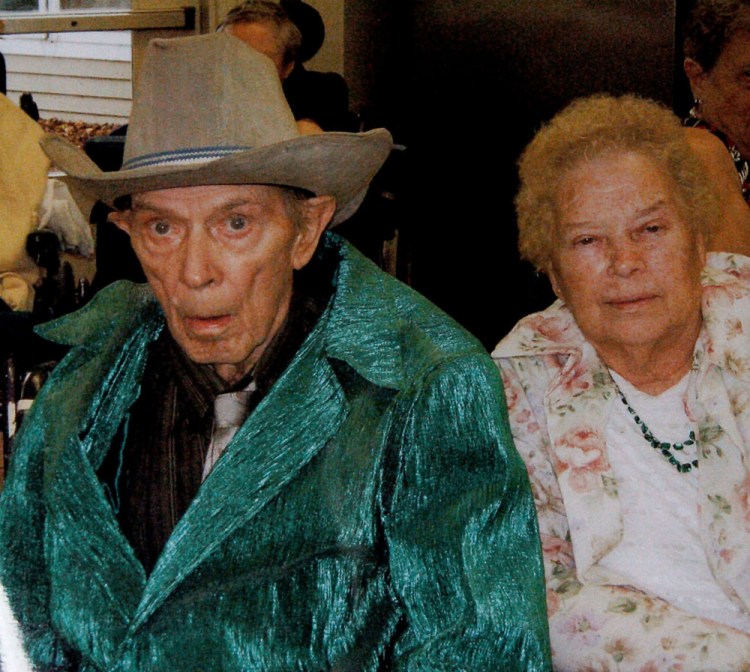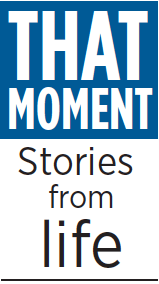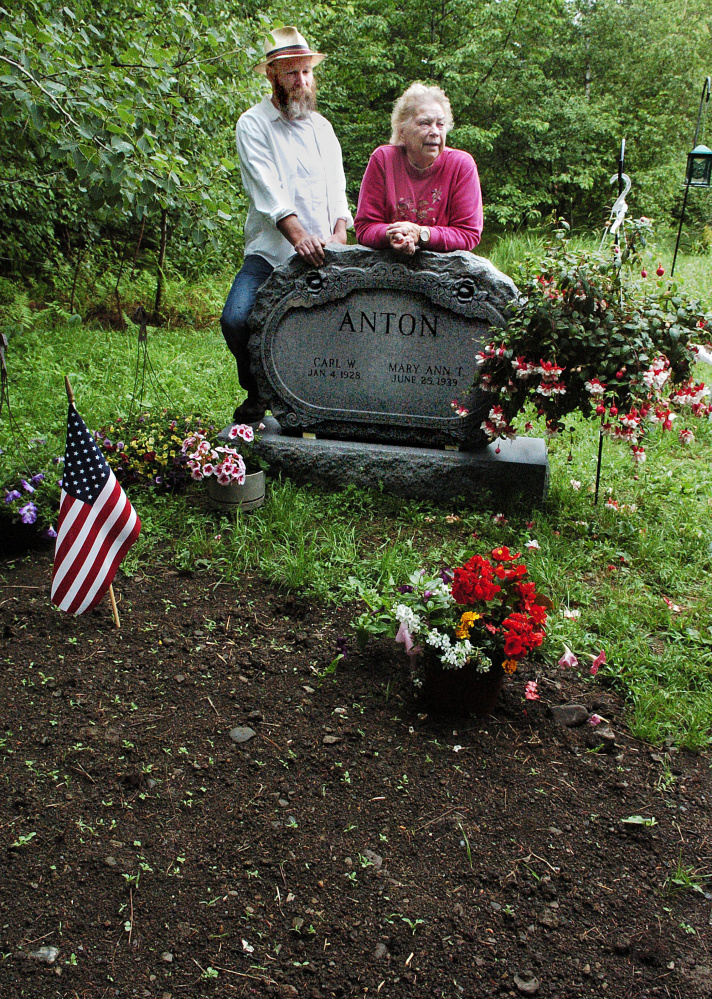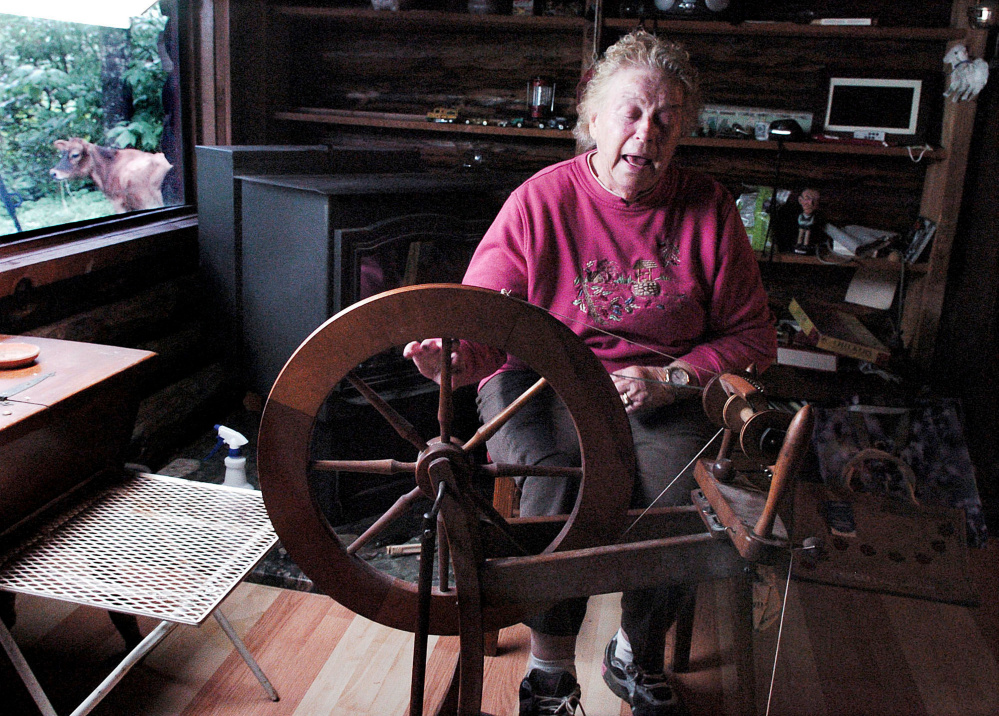WEST ATHENS — Carl Anton was an old-timer.
A singer and songwriter in the Hank Williams tradition, Anton lived in the old ways, a tradition his family follows, hauling milk by the bucket, making their own paint, eating what they raised themselves and spinning yarn from their own sheep wool.
Before he died last month at age 88, Anton told his family he wanted to be buried the old-fashioned way — at home, on his own land, in a coffin made by his son, Scott, who runs Ol’ Ways Farm in Solon and who built his parents’ log home on Chapman Ridge Road in West Athens.
No embalming fluid, no undertakers, no concrete burial vault.
And it is all allowed under Maine law regarding family burial grounds.
“This is the spot he had picked,” Carl’s widow, Mary Ann, said at the grave site near her house. “I’ll be buried right here, too.”
The cemetery is a 35-feet square of land near the road and set among the flickering leaves of young poplar trees.
“When the wind blows, they’re kind of nice,” Scott Anton, 51, said of the poplars.
There is a large headstone with Carl and Mary Ann’s names etched into the granite, lots of living flowers and an American flag.
“So many people have gotten ahold of us or seen what was going on or heard through the grapevine that we’d just had an old fashion funeral,” Scott Anton said. “So many people are interested because they don’t want to go through the funeral homes. Dad wanted to be buried on the farm. He asked me years ago to build him a coffin. He just want to be buried at home.”
Mary Ann said Carl began to fade at the nursing home during the first week of June and she knew it was time to bring him home. He was bed-ridden and not eating.
She wanted him home.
With the assistance of Hospice Volunteers of Somerset County, Carl was taken home and moved into a bed in the living room of the house he had shared with his family for so many years.
Carl came home on Wednesday, June 8, and was home for five days before he died on Monday, June 13. He died of septicemia, a bloodstream infection.
His bed was pushed up against a wall with an air conditioner on high while Scott prepared the ground for his dad’s final resting place. He was buried the next day.
“He knew he was home,” Mary Ann said. “He was happy with that. When he got home, his eyes just popped right out and he was pointing to the old chimney and he was talking and he recognized every one of the kids that came in. I was so glad to be able to bring him home and do what we did because to me, it was what he wanted. It was what we wanted, and I was completely at peace.”
FAMILY BURIAL
When Carl died, a special hospice nurse came to the house and called the family doctor, who advised her to check his vital signs to get a legal death certificate.
“She checked the vitals. He had no vitals and the doctor pronounced him dead,” Mary Ann said. “She washed him all up, and Scott and (his wife) Gemma and I dressed him.”
The next day, June 14, the family put Carl on a stretcher and carried him to the nearby grave.
“We had the coffin already out there and we just lifted him in the coffin and put him in the ground,” Scott said. “Gem and I and my brother Kurt lifted him up and put him in the coffin and got him straight, the way he was in there best, comfortable.”
Inscriptions were written on the top of the coffin and family members placed special items inside it.
“All the kids lowered the box, and I had to put in the first shovel of dirt,” Mary Ann said. “Then all the kids put a shovel of dirt in.”
There are provisions under Maine law for landowners to establish a burial ground on their property for the purpose of interring family members, according to a section of the Department of Health and Human Services government website.
Although a license is not needed, a family burial ground does have to be recorded with a property deed. A family burying ground must be on a piece of land containing not more than a quarter acre and a description of it has to be recorded in the county Registry of Deeds or by the clerk of the town where the burial plot is situated.
The landowner also must substantially mark the bounds of the burying ground or enclose it with a fence if there are not other conflicting local ordinances in place.
To best assure protection of the burying ground as well as ensuring compliance with any local ordinances, the state recommends that the parcel be recorded with both the town and the county, according to the website.
Scott Anton acknowledged that the 35-square-foot burial area is part of the property and would be disclosed as a family cemetery if the home and land were ever sold.
“But it’s deeded as a cemetery, so they can’t do anything with it,” he said of potential property buyers. “It will always be a cemetery.”
‘SETTLES YOUR MIND’
The state recommendations were all it took for the Antons, who are lifelong dairy farmers. Coffins and vaults are not required by law.
The Antons said they did everything they needed to do to fulfill Carl Anton’s wishes to be buried on the land where he spent most of his life. The cemetery was deeded off the main property by a local lawyer as a separate piece of property.
Scott Anton said his father was interested in being buried in the Athens cemetery downtown, but rules forbid a homemade coffin and he would have had to be buried in a vault. He made his father’s coffin from pine and ash sawed from his own property.
“We’re very old fashion — not a little, a lot,” Mary Ann, 77, said. “I spin and have my own sheep. We did Civil War re-enacting and everything we’ve done has kind of led to doing something like this — this is an 1890s thing, the burial. It would be something that they would have done in 1890.”
Scott Anton, a photographer in the 1800s collodion wet-plate style, said he used to run his farm using horses, but has phased that out as modern times make life busier than he would like. His wife Gemma takes the old ways thing a step further — she has a doctorate in archaeology.
He said society has come far from its connection to the land and to the old ways of living. Now, he said, people just hire someone to do the work of burying family members.
“There’s nothing involved — money-wise,” Scott said. “I built this all up for the cemetery, and we got a load of top soil and I built the coffin and it took me five days and no money.”
Aside from the cost of the headstone, the burial was done for less than $400.
“Gemma and I and my mother have dealt with this very well,” Scott said. “I think the way we did it, by taking part in it, it just settles your mind better, the way you feel about it. It’s made a huge difference by us doing that.”
Doug Harlow — 612-2367
Twitter:@Doug_Harlow
Send questions/comments to the editors.






